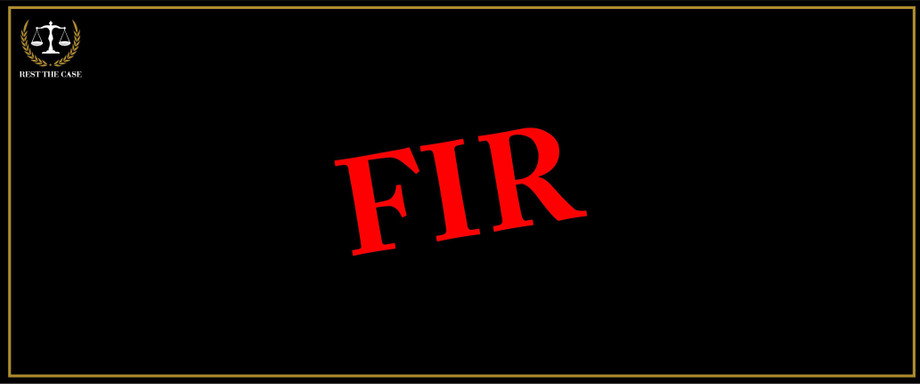Facing the wrath of a false FIR can be a nightmare for a person. In present circumstances, many cases arise where people lodge false FIRs to harass the opposite party. In this article, we have mentioned various remedies by way of which a false FIR can be handled.
Before discussing the remedy, first, let’s talk about what is an FIR?
First Information Report or FIR is the first and foremost document that is prepared before criminal proceedings are initiated against the accused under section 154 (1) (x) of the Criminal Procedure Code (CrPc), 1973. It is a complaint lodged with the police by the victim when a cognizable offence (list of which are mentioned in Schedule I of the CrPC) arises against him/her. A victim or someone on his/her behalf can file an FIR at the concerned police station. It is considered to be an important document as it sets the process of criminal justice in motion. However, there are several cases where false FIRs are filed against a person or group of persons just to harass or falsely implicate them in a false case.
Remedies against a false FIR
When a person feels that a false FIR has been lodged against him/her, he or she can resort to the below-mentioned remedies:
Before Arrest
A person against whom a false FIR has been lodged can apply for Anticipatory Bail before the arrest, before the Sessions Court, or the High Court under Section 438 of the Code of the Criminal Procedure, 1973. Anticipatory Bail allows an accused to apply for bail in case of a cognizable offence whenever there is an anticipation of arrest. About its objective, this section protects a person from facing false arrest and harassment that might come along with a false FIR. Before granting anticipatory bail, the court takes into consideration all the factors associated with the case. Then it is at their discretion to decide whether to grant the bail or not.
However, this remedy can be availed only before the arrest; once an arrest has been made, the victim can seek relief under Section 437 or 439 of the CrPC.
After Arrest
After the arrest has been made, the victim can apply to quash the FIR filed against him under Section 482 of the CrPC before the High Court.
Section 482 of the CrPC allows High Court to pass any order which is necessary to prevent abuse of process of courts or to secure ends of justice to the people.
Grounds on which a victim can claim relief under Section 482:
•When the act or omission based on which an FIR has been lodged doesn’t account for an offence;
• Non-Happening of the event on which FIR is based;
•Baseless allegations without any reasonable grounds;
Stages at which application under Section 482 can be filed:
- Before filing the Chargesheet: The victim can file an application before the High Court for quashing the FIR if it is against the Principle of Natural Justice and could cause a wrongful conviction to the accused.
- After filing of the Chargesheet: If on the basis of a fabricated and false FIR, a charge-sheet has been filed and the case is committed to session judge, before the commencement of the trial, the accused can file for a Discharge Application under Section 227 of the CrPC. The grounds on which the said application can be filed are:-
•When the charge sheet has no Prima Facie evidence against the accused
•When the trial cannot be commenced due to insufficiency and unavailability of evidence on record
•Due to inadmissibility of the evidence as per the provisions of the Indian Evidence Act.
- After the Commencement of Trial: This step resorts after the Sessions Court has rejected the Discharge Appreciate of the victim. When the charge is framed, and the trial has commenced, then an application under Section 232 of the CrPC can be made only for the acquittal of the accused.
You might also be interested in: HOW DO I FILE AN F.I.R. (FIRST INFORMATION REPORT)?
Write Petitions that would provide a remedy against a false FIR
One of the most resorted remedies against a false FIR is to file a writ petition before the High Court under Article 226 of the Indian Constitution. Here, the High Courts again have the power to quash it if it does injustice to any person. The two writs that can be filed in this case are:-
• Writ of Mandamus — This writ can be filed particularly against a police officer or the police department that has lodged the false FIR directing them to perform their duties lawfully.
• Writ of Prohibition — By filing this writ, a prohibition order can be obtained from the High Court to a Subordinate Court where the trial of the victim is going on based upon the frivolous FIR.
Defamation Case
Usually, a false FIR is lodged against a person to defame the person. The attempt to defame the person clearly shows the malicious intention of the person lodging the complaint reason being enmity or personal grudges against them. In such cases, victims suffer humiliation and shame in society costing him/her reputation loss. To tackle such situations, a civil suit can be filed under Section 19 of the CrPC to get compensation for the damage suffered by the false complaint. Criminal defamation is defined under Section 499, read with Section 500 of the Indian Penal Code, 1860. The punishment for defaming a person would be imprisonment up to two years or with a fine or with both.
As we know, the law is made to protect our rights, but many times people misuse it for their advantage resulting in the misery of others. With the increasing number of cases, it has become necessary to be aware of the remedies available if false FIR is lodged against any person.

